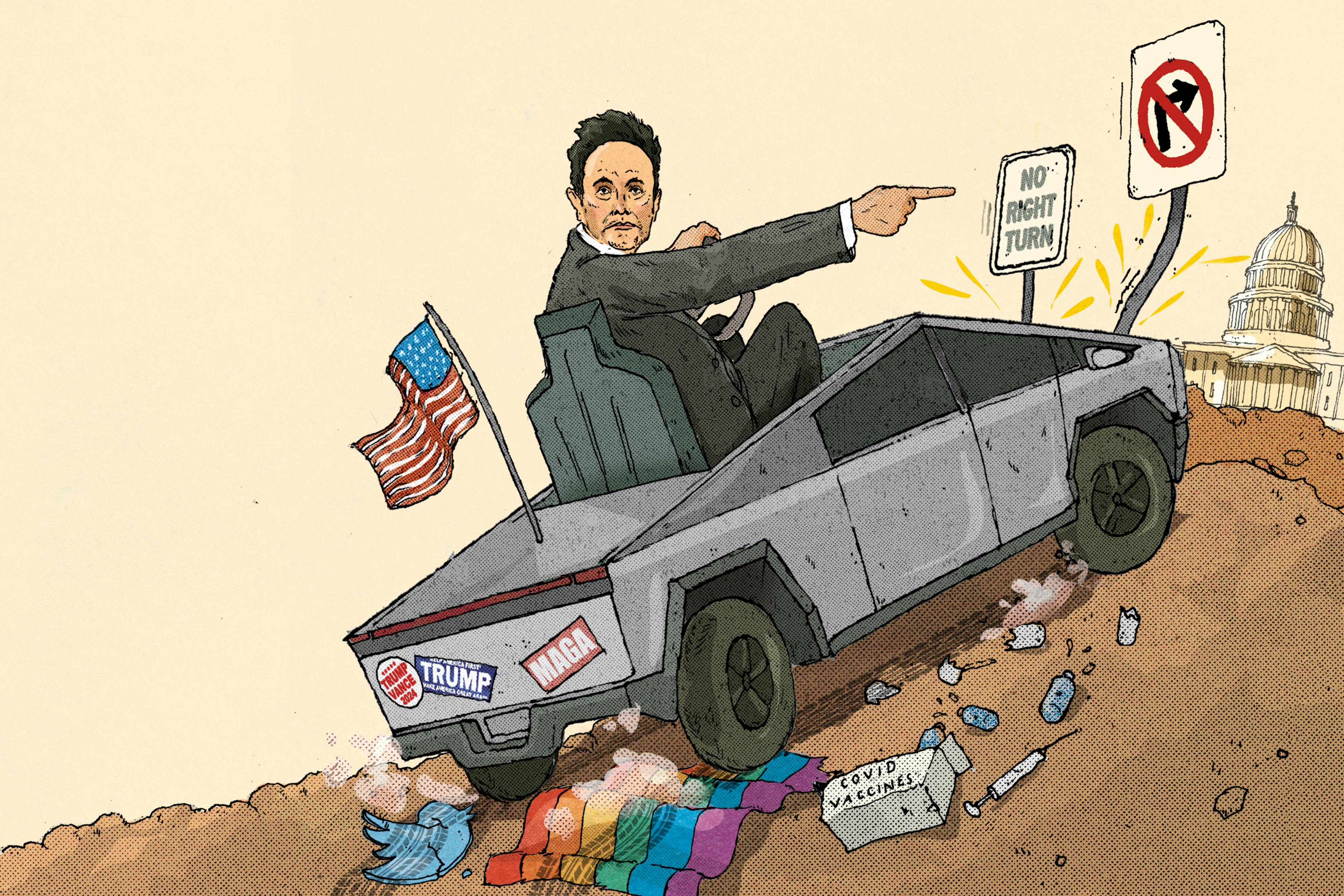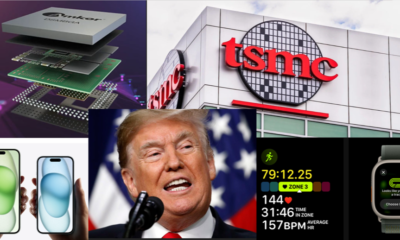Donald Trump has always been a polarizing figure, whether in politics or business. Yet, his knack for persuasion—or perhaps intimidation—has once again made headlines. As Trump gears up for his second innings in the Oval Office, tech titans who once bore the brunt of his biting criticism are now pledging donations to his inauguration fund.
Is this a case of genuine support, strategic self-preservation, or simply the cost of doing business with a president who holds all the cards?
The Unexpected Turn of Events
To put into perspective, OpenAI CEO Sam Altman, embroiled in a heated legal battle with Elon Musk, is now stepping up with a contribution. Musk, one of Trump’s biggest backers, seems all set to wield significant influence in Trump’s administration. Then there’s
Meta’s Mark Zuckerberg and Amazon’s Jeff Bezos—tech moguls with a fraught history of public clashes with Trump. Suddenly, they too are donating to the cause.
The timing is curious. Trump’s rhetoric about taking on Big Tech hasn’t softened. Just this month, he nominated Gail Slater to lead the Department of Justice’s antitrust division, signaling a continuation of his crusade against monopolistic practices in the tech industry. “Big Tech has run wild for years,” Trump declared on Truth Social, promising to tackle their abuses once again.
A History of Hostility
Trump’s relationship with Big Tech has always been rocky. He has lobbed insults like “Jeff Bozo” at Bezos and “Zuckerschmuck” at Zuckerberg. His first term saw him accusing Amazon of dodging taxes, exploiting the U.S. Postal Service, and propagating fake news through
The Washington Post. The animosity wasn’t one-sided; Bezos once sarcastically offered to send Trump into space on a Blue Origin rocket.
Meta hasn’t been spared either. After Trump’s 2020 election loss, he launched lawsuits against Facebook, Twitter, and Google, accusing them of silencing conservative voices. Zuckerberg, for his part, faced criticism for Facebook’s role in moderating content, leading Trump to label the platform “the enemy of the people.”
OpenAI and the Musk-Altman Story
For Sam Altman, the bets are slightly different. OpenAI, the company he co-founded with Musk, has become a battleground for legal disputes. Musk, who has since launched a rival AI venture, xAI, accuses Altman of transforming OpenAI into a for-profit entity controlled by Microsoft. Altman has denied these allegations, claiming Musk himself supported the for-profit structure in 2017.
Adding fuel to the fire, Trump recently appointed Musk ally David Sacks as the White House “A.I. & Crypto Czar,” a move that raises questions about the administration’s potential influence over emerging technologies.

How the Tune Has Changed For Tech Titans
The tech world’s pivot toward Trump may stem from pragmatism rather than principle. With Trump’s antitrust agenda looming large, these donations could be seen as a strategic peace offering—a way to stay in the administration’s good graces. After all, a hostile Trump presidency could spell trouble for companies already under scrutiny.
For some, the donations might also reflect a calculated attempt to secure influence. In politics, access is power, and contributions often open doors. Whether it’s Amazon vying for government contracts or OpenAI seeking regulatory clarity, aligning with Trump could be a means to an end.
The tech world has always had a love-hate relationship with Donald Trump. From open hostilities to sudden alliances, the journey of Silicon Valley’s top players with the President-elect is nothing short of dramatic.
As Trump prepares to return to the White House, the shift in tone is striking, with leaders like Jeff Bezos, Sam Altman, and others lining up to support his inauguration fund, the tome has shifted from opposition to optimism.
At The New York Times’ DealBook Summit on December 4, Amazon founder Jeff Bezos, who once sparred publicly with Trump, struck a markedly different note.
“I’m actually very optimistic this time around,” Bezos said. “He seems to have a lot of energy around reducing regulation. If I can help do that, I’m going to help him.”
This optimism from Bezos signals a sharp reversal from the days when he offered to launch Trump into space on a Blue Origin rocket, following Trump’s relentless criticism of Amazon and The Washington Post. Now, Bezos appears to be leaning into the opportunity to influence the regulatory scene perhaps under Trump’s administration.
The Bandwagon Effect
Bezos isn’t alone in his change of heart. Tech leaders like Apple’s Tim Cook, Microsoft’s Satya Nadella, and Google’s Sundar Pichai were quick to publicly congratulate Trump on his victory.
While some companies remain tight-lipped about their financial contributions to Trump’s inauguration, others, like Amazon, Meta, and OpenAI, have made their positions clear with $1 million donations each.
For OpenAI’s Sam Altman, its probably a bit more personal. With Elon Musk—now a key Trump ally—poised to lead the “Department of Government Efficiency,” Altman faces the risk of AI regulations being shaped to favor Musk’s businesses, including xAI. Altman’s million-dollar donation to the inaugural fund could be seen as a strategic move to remain in the conversation.
What Is an Inaugural Fund?
An inaugural fund supports the president-elect’s swearing-in ceremony and related events. While the Presidential Transition Enhancement Act, signed into law by Trump in 2020, sets ethical guidelines for transition teams, Trump’s refusal to sign certain agreements has allowed him to bypass limits on donation sizes and disclosure requirements.
Donors to Trump’s inaugural committee reportedly gain access to exclusive perks, such as receptions with Cabinet members and invitations to high-profile events, including a candlelight dinner with the Trumps. Critics like Senator Elizabeth Warren have slammed this reliance on private donors as a way for insiders to curry favor while bypassing taxpayer oversight.

The Risks of Resistance
Could the shift in tone among tech leaders be to avoid the risks of opposing Trump?
With his re-election solidifying his power, Trump has little to lose in his second term. Observers like political analyst Edwards describe him as “a man on a mission,” determined to cement his legacy and make bold moves.
For tech billionaires, aligning with Trump may be less about ideology and more about pragmatism. “Taking a stand against Trump is always going to come with risks,” Edwards noted. “Jump on the bandwagon and play the game, or be quiet.”
A Calculated Gamble
As January 20, 2025, approaches, it’s clear that the tech sector has made its choice. Donations to Trump’s inaugural fund are as much about self-preservation as they are about influence. In a world where regulation, antitrust scrutiny, and AI governance are in flux, staying in Trump’s good graces could mean the difference between thriving and merely surviving.
For all the criticism leveled at Trump, his ability to bend even his fiercest critics to his will is undeniable. Whether through fear, respect, or sheer business acumen, he has managed to turn adversaries into reluctant allies. The donations to his inauguration fund surely prove that.
In Trump’s America, it seems, even the most powerful players know when to play along.















